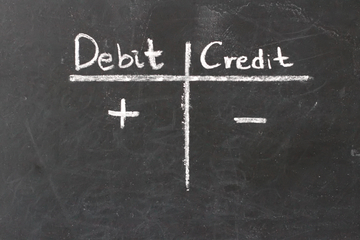The ability to borrow moneyborrow money can be a powerful asset in your financial arsenal. However, banks and financial institutions aren't in the business of lending money for free. Instead, lending institutions charge borrowers a variety of fees to compensate themselves for the risk associated with issuing the loan. These fees and charges can be grouped together and categorized as finance charges.
What Is a Finance Charge on a Loan?
A finance charge is the cost of credit or the cost of borrowing money. Finance charges are often calculated as a percentage of the loan amount. In other circumstances, finance charges could take the form of a flat fee that you pay before or during the life of the loan, such as account setup fees, loan application fees, and origination fees. Although finance charges can vary, they almost always depend on the following factors:
- The current interest rates
- The amount of money you borrow
- Your credit score
- The type of loan
- Whether the loan is secured or unsecured
- The lender's policies
- Global interest rate factors
- And more
One common misconception is that finance charges are synonymous with interest. While finance charges can include interest, they can also encompass other fees and premiums associated with:
- Borrowing money
- Paying off loan obligations
- Obtaining credit
Finance Charges on a Loan
Finance charges are a mechanism designed to help compensate creditors for the risk assumed by lending you money. Finance charges protect lenders if you fail to make your payments as scheduled. While each lender's finance charges can vary, every creditor must properly and accurately disclose fees and finance charges, thanks to the Truth in Lending Act (TILA).
TILA protects you from unfair credit billing and inaccurate lending and credit card practices. This piece of legislation requires lenders to provide you with certain loan cost information and explain finance charges, so you can compare different loan options and make the best decision.
Types of Finance Charges
You pay finance charges to compensate lenders for the risk associated with lending you money. The most prevalent finance charge is the interest, which is often expressed as the annual percentage rate (APR). The APR is the cost you pay each year to borrow money, including fees, expressed as a percentage. In addition, to the interest rate associated with the loan, other common types of finance charges include:
- Credit card annual fees may be a lump sum charged by a credit card provider annually for using the credit card. Annual fees are often offset by exclusive perks associated with using the card.
- Credit card cash advance fees are charged when you take a cash advance from your credit card.
- The credit card cash advance interest rate is often a higher interest rate charged on the amount of your cash advance.
- Late fees are levied whenever you do not make your payment by the due date.
- The loan origination fee is a type of finance charge that covers the costs of processing your loan. Loan origination fees are usually associated with mortgages and certain lines of credit. However, origination fees can apply to other forms of credit.
- A closing cost is a finance charge very specific to mortgages. Closing costs can include several other costs, such as title search, underwriting fees, down payment, mortgage discount points, and appraisal fees. You typically pay closing costs when you close on a mortgage.
- Prepayment penalties may be charged if you pay your loan off faster or earlier than agreed. This fee helps prevent lenders from losing out on interest income if you pay the loan off early but it can also mean that the cost to you increases.
- Mortgage insurance is a type of insurance policy that protects the mortgage lender in the event of default. Mortgage insurance may be required for a lender to issue you a loan.
- The foreign transaction fee is a surcharge associated with making purchases in a foreign currency, or when the transaction passes through a foreign financial institution.
- There are many other types of finance charges
Why Should You Understand Finance Charges?
Understanding finance charges is paramount to good financial health. It allows you to compare lending products that may seem identical, based solely on the APR. Upon closer inspection of the finance charges, you may discover one will cost you significantly more than the other. Your ability to understand these charges can save you significant money and help you make the best decision. However, just because one loan has lower finance charges doesn't mean it's the best option for you. In certain situations, it may be smarter to select a loan with higher finance charges as a trade-off for other desirable features.
Frequently Asked Questions
Do I Have to Pay the Finance Charge on a Loan?
If a lender has finance charges, you will have to pay them. With installment loans, lenders may dictate that certain finance charges are to be paid upfront. There are ways to avoid certain types of finance charges with certain lending products. With credit cards, you may be able to avoid interest-finance charges when you pay your entire statement balance off by the due date. If you do not pay the entire balance, interest, and other finance charges will be applied. There are two instances in which this may not apply:
- If you take out a cash advance, you will likely start accruing interest on the funds immediately.
- If you perform a balance transfer and do not have a 0% transfer rate, your balance transfer will most likely start accruing interest immediately.
Is Finance Charge the Same as Interest?
No, a finance charge isn't the same as interest. While the finance charges often include interest, it also includes every other cost associated with borrowing money, such as:
- Late fees
- Loan processing fees
- Early repayment penalties
- Closing costs
- And more
A finance charge includes any cost you incur from borrowing money.
Integra Credit
As a borrower, it's imperative you understand your lender’s finance charges prior to accepting a loan. More so, understanding the finance charges can empower you to make the best and smartest financial decision.
If you need a loan to cover expenses, Integra Credit is ready. Apply today or contact us with inquiries.
Sources
- Truth in Lending | OCC
- Finance Charge - Overview, How It Works, How To Avoid
- Understanding Finance Charges for Closed-End Credit
- What Is Mortgage Insurance? | Bankrate
- Finance Charge - What Is It, Formula, How To Calculate, Examples
- Foreign Transaction Fee: What is it? How does it work? | LendingTree
- What Is a Finance Charge?
- Finance Charge | Rocket Money
- What Is a Finance Charge and How Do I Avoid It? - MoneyTips
- Finance Charge Definition: Everything You Need to Know



